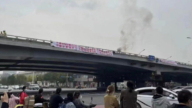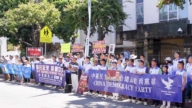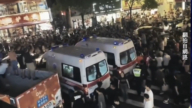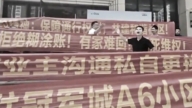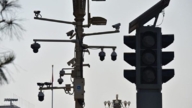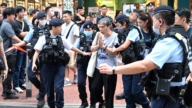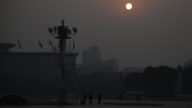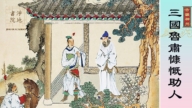【新唐人2011年2月17日讯】被称为“Facebook革命”的埃及政变事件,有评论认为,埃及民众有组织、有步骤的和平示威,革命成功,值得中国人民学习。美国旧金山民运人士讨论会上,有人提出:中国民运应该走出“维权”的旧思路,像突尼斯、埃及民众那样,直接提出推翻独裁专制的政府。
突尼斯“茉莉花革命”和埃及开罗“解放广场民主运动”的成功,促使美国旧金山民运人士再次开启“国事沙龙”会议。与会人士对于突尼斯和埃及革命的成功,都有一个共同的看法,就是他们国家的军队没有向人民开枪,起到关键作用。
六四亲历者吴仁华:“因为今天我们看到了,就埃及很多军队的高级将领,他们毕业于美国的西点军校,所以他们的成长背景,以及他们的世界观,跟中共那种军队在党的强力的控制下,他们的成长背景…他们是从中国的所谓解放军国防大学出来的,那种教育方式,教育灌输的东西,是完全不一样!”
中国的社会矛盾比起突尼斯和埃及,不知道要严重多少倍,但中国为什么至今都没有发生“茉莉花革命”?
六四亲历者吴仁华:“关键的问题就是说,怎么能把群众组织起来,带上大街。人民的改革动力、愿望,我觉得都是已经成熟了,现在最关键的就是说,怎么能够在共产党对异见的强力打击之下,不让你成军的情况之下,能够把这些力量统合起来。”
《自由亚洲电台》报导,前89民运学生领袖封从德认为,是因为中国民主运动的方向一直停留在“改革”、“维权”上,没有像埃及民众那样直截了当的提出“革命”。 在六四镇压中,被解放军坦克碾断双腿的前北京学生方政认为,现在中国的问题就是,所有的热点都没有最终引向爆炸。到处都是导火线,但都被分散、瓦解或转向了。
方政表示,就像“钱云会事件”一样,如果反对派的思路不是简单的维权,上来就是改这个政府的话,钱云会的事件就会是一个爆炸性的导火索。
埃及的“Facebook革命”是不是可以在中国被成功复制?
《美国之音》报导,事实上,Facebook在拥有四亿网民的中国是被封杀的,而仿效Facebook的社交网站最具规模的就属《人人网》和《开心网》,用户超过二亿六千万人。但网站必需配合中共政策,自我审查政治敏感信息,因此中国想要藉社交网站推动政治变革是有困难的。
报导中提到,上星期在香港举行的一次社会媒体讨论会上,《人人网》华东地区市场部经理透露,他的公司在武汉设有一个雇员达五百人的政治审查部门。《新浪网》香港区总经理李婉明也说,《新浪网》拥有一个专门队伍,负责审查和监控自己网站上的政治敏感信息。
德国《金融时报》2月14号的评论则认为,突尼斯和埃及之所以发生民众抗议,其实是失败在富裕的分配上。被甩掉的年轻人无法分享经济增长的果实。
而在中国,经济的快速增长一样没有给年轻人太多的发展机会,他们是潜在的抗议生力军。德媒认为,北京若不尽快疏导民怨,去除不满的根源,将会面临远比1989年天安门广场民主运动,规模更大、更坚决的民众抗议。
新唐人记者李庭,萧宇综合报导。
Activists: Breaking Through the Old Mindset of “Safeguarding Rights”
The success of Egyptian people’s organized and
peaceful demonstrations,
the so-called “Facebook Revolution,”
has set an example for the Chinese.
In a recent democracy symposium in San Francisco,
some activists proposed to break through
the old mindset of “rights protection,”
and directly overthrow the tyrannous dictatorship.
The success of Tunisian “Jasmine Revolution” and
Egyptian democratic movement prompted
Chinese democratic activists in San Francisco to
re-open the “National Affairs Salon” forum.
All participants shared one common thought,
that the armies not firing at their own people
was a crucial contribution to the revolutions’ success.
Wu Renhua, witness to the Tiananmen Massacre:
Many Egyptian military officers are West Pointers.
Their background and world views are entirely different
from China’s military officers, who were educated
in the so-called Liberation Army Defense Universities,
and were educated under the indoctrination system
that was strongly controlled by the Communist Party.
In comparison with Tunisia and Egypt,
the social conflicts in China are far more severe.
Why hasn’t Jasmine Revolution broken out in China?
Wu: The key issue is how to organize the masses
to take to the streets. I believe Chinese people’s
incentives and wishes for reform are mature.
The key is to organize the separate dissident forces
amid the CCP’s strong oppression.
According to Radio Free Asia, Feng Congde,
student leader in 1989, believes, Chinese democratic
movement has remained on “reform” and
“rights protection” for a long time.
It didn’t call for a revolution as the Egyptians did.
Fang Zheng, who lost his legs to Liberation Army tanks,
said, all the issues in China didn’t lead to an explosion.
The fuses are ubiquitous, but diverted or disintegrated.
Fang Zheng said, just like the Qian Yunhui Case,
if the dissidents were not focusing on rights protection,
but on changing the government from the start,
the case would have become an explosive fuse.
VOA reported, Facebook is blocked in China.
400 million Chinese netizens have no access to it.
The most popular Facebook-type social websites
are Renren.com and Kaixin Network.
They have over 260 million users. However, the sites
have to cooperate closely with the regime
to self-censor and filter politically sensitive terms.
Therefore, it is difficult to use the social websites
in China to promote political changes.
In a social media forum held in Hong Kong last week,
a marketing manager of Renren.com revealed,
the company has a 500-people censorship department.
Sina Hong Kong regional general manager Li Wanming
also said, Sina.com has a team to censor and monitor
sensitive political information on its own website.
Financial Times commented on Feb. 14,
Tunisian and Egyptian demonstrations broke out
mainly because of failed wealth distribution.
The youth can’t share the benefit of economic growth.
Similar in China, the rapid economic growth doesn’t
give the youth much opportunity for development.
They are the potential protesters.
If Beijing doesn’t relieve the public grievances quickly
and eradicate the root causes of the discontents,
it will soon face more determined civilian protests
larger in scale than the 1989 Tiananmen movement.
NTD reporters Li Ting and Xiao Yu


